Learn SEO - More knowledge, more growth.
With us, you will learn what really matters in SEO. We show you how to take your website to the next level with online courses, SEO consulting and webinars. Learning SEO made easy – with SEO Galaxy.
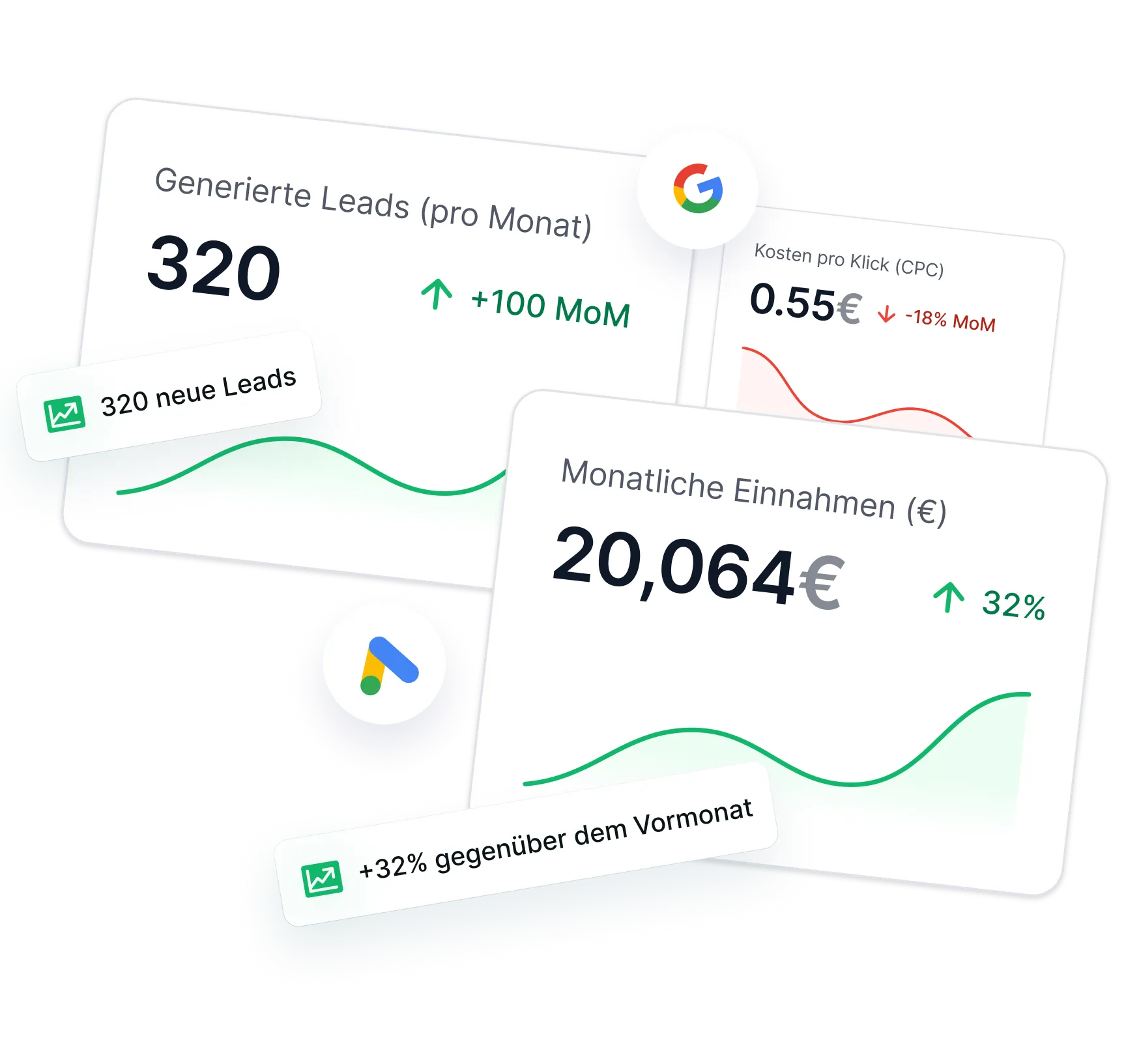
SEO GALAXY WAS MENTIONED IN


.webp)




.webp)






.webp)



Learn SEO: It's really easy
At SEO Galaxy, we offer you the opportunity to learn SEO from scratch. With our practical online courses, informative videos on our YouTube channel and webinars, we give you the know-how you need to optimize your website for search engines. Our aim is to introduce you to the most important pillars of SEO: Technology, keywords, website structure, content and off-page optimization.
In our SEO courses, you will learn how to improve your position in the search results through targeted keyword research, ranking analysis and a well thought-out website structure. We show you how to create high-quality, target group-relevant content and take the most important ranking factors into account.
Whether you’re a marketing manager who wants to understand the basics of SEO or a budding SEO employee, you’ll find the right learning opportunities at SEO Galaxy. From a compact SEO crash course to a comprehensive online self-study course, we offer you a variety of formats to take your SEO knowledge to the next level.
About us
Hey, we’re SEO Galaxy – your partner for sustainable online success. Since 2016, we have been helping companies to not only be visible on Google & Co. but to stand out. With a strong combination of SEO and SEA expertise, smart strategies and an eye for the essentials, we get your brand exactly where it belongs: right at the top.
What makes us special? Over 1,000 successfully implemented projects, genuine expertise and a feel for what really works. As a specialized service provider, we believe in solutions that not only look good, but also perform measurably – individual, well thought-out and always in tune with the times.
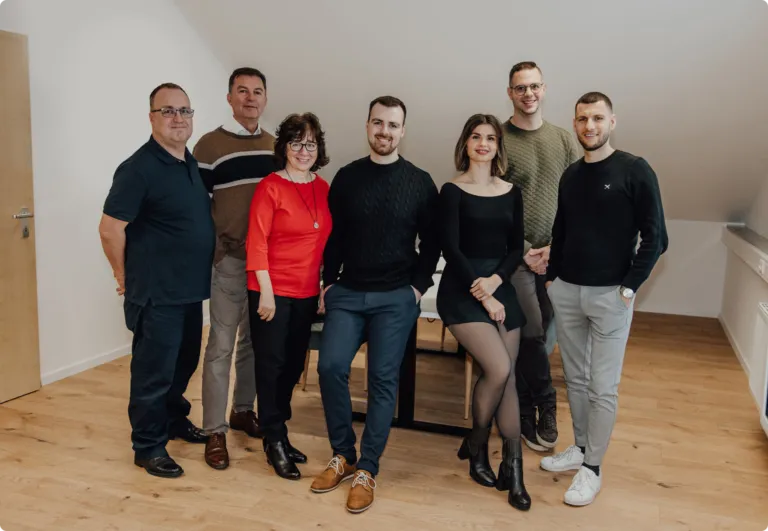
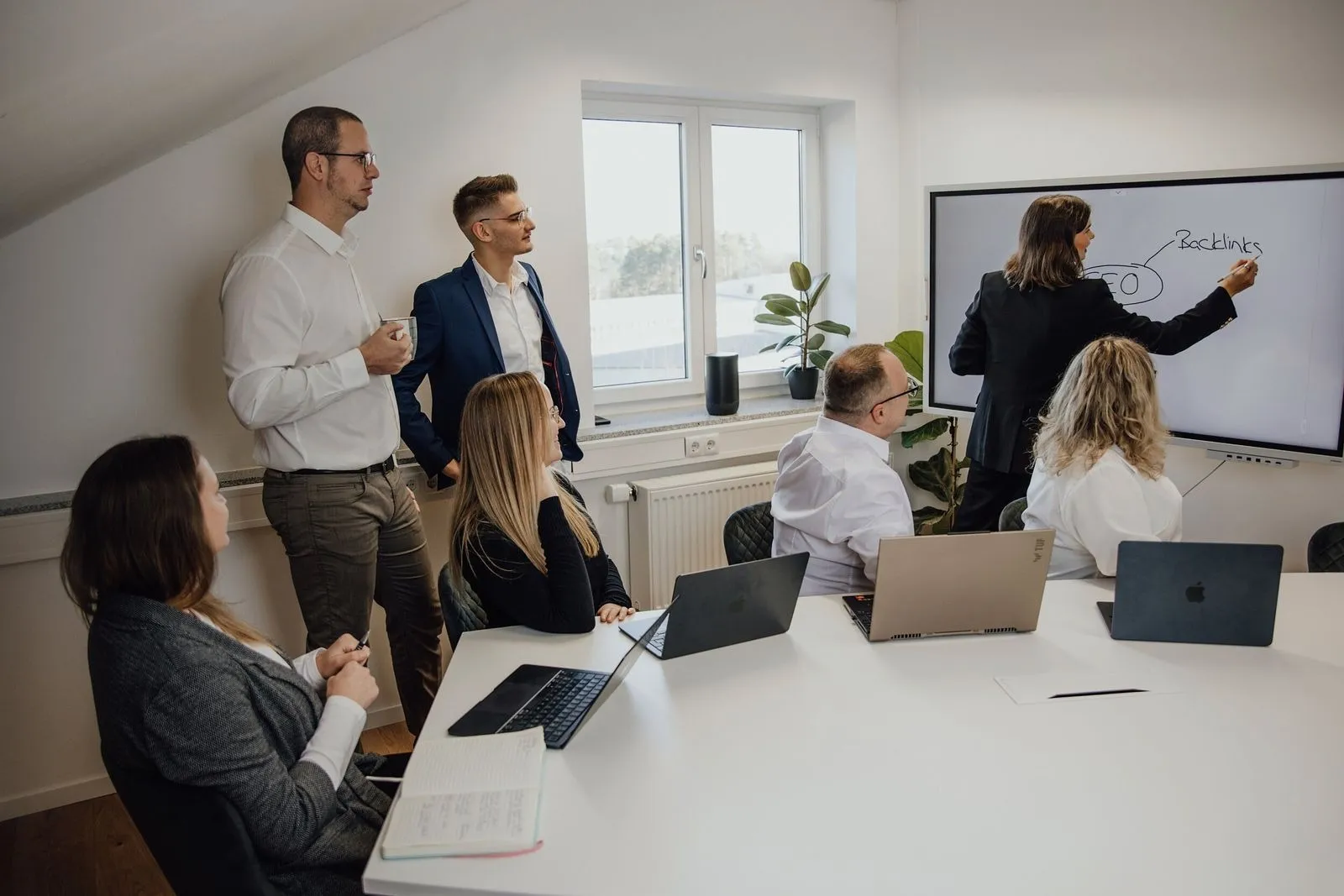
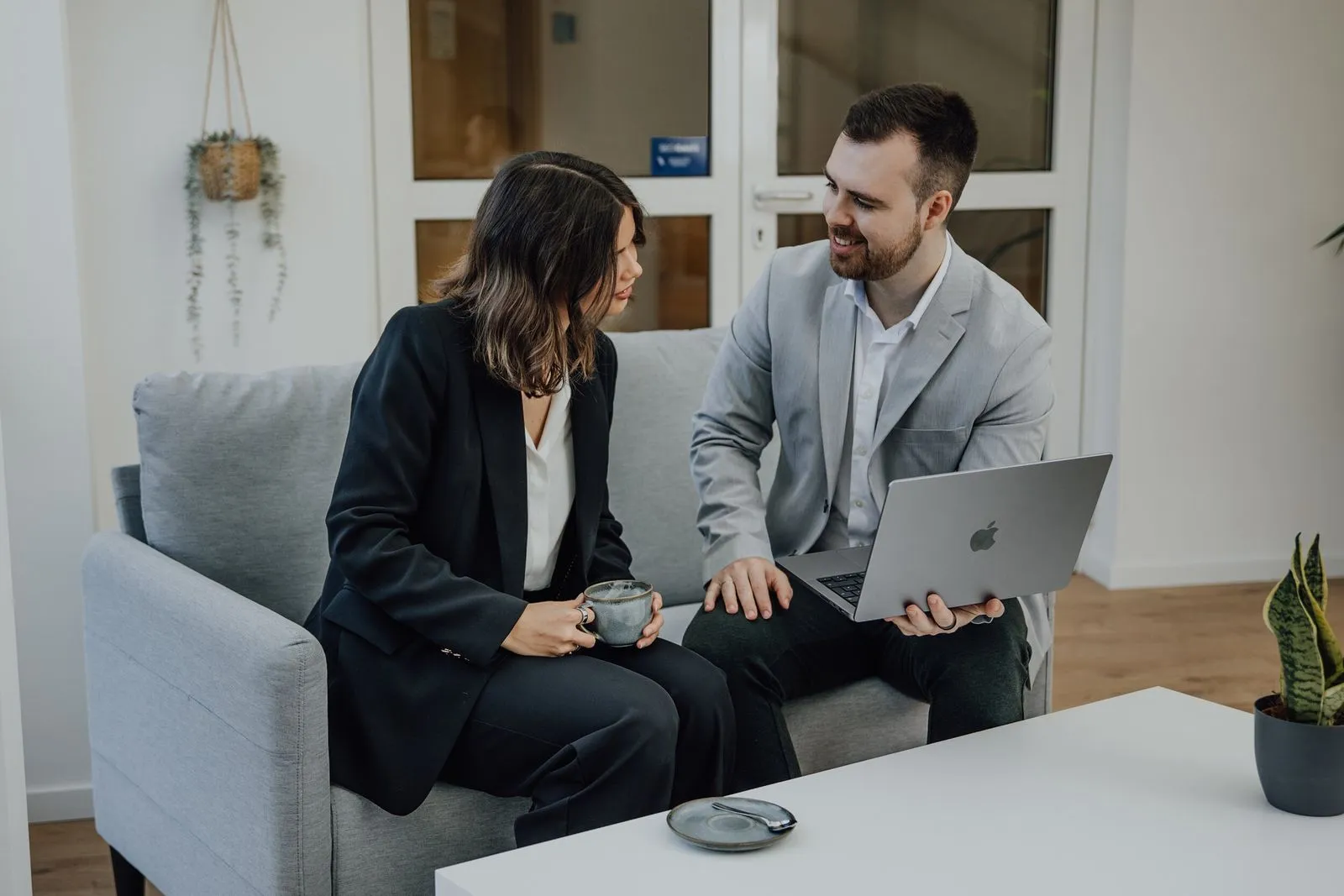
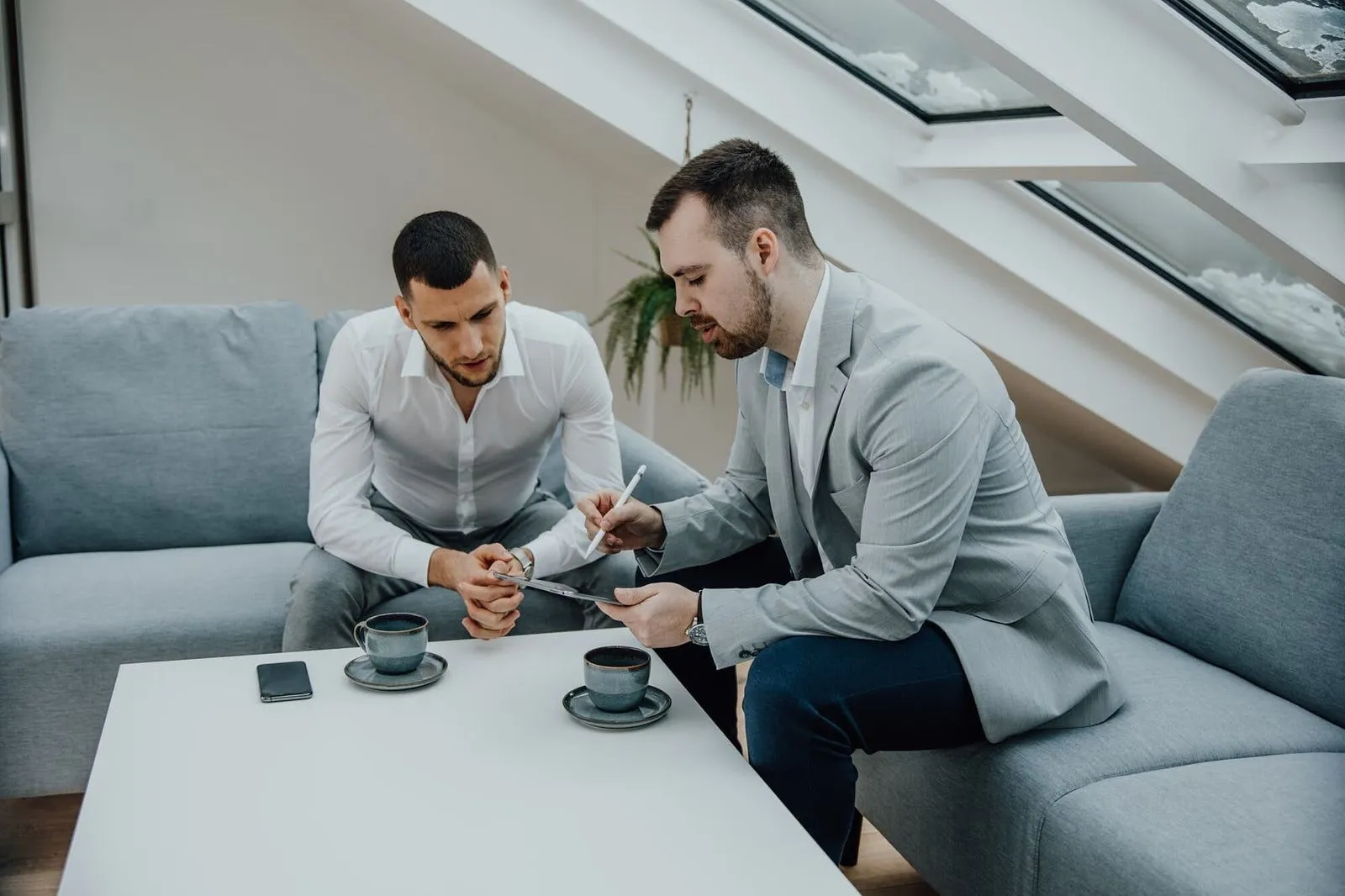
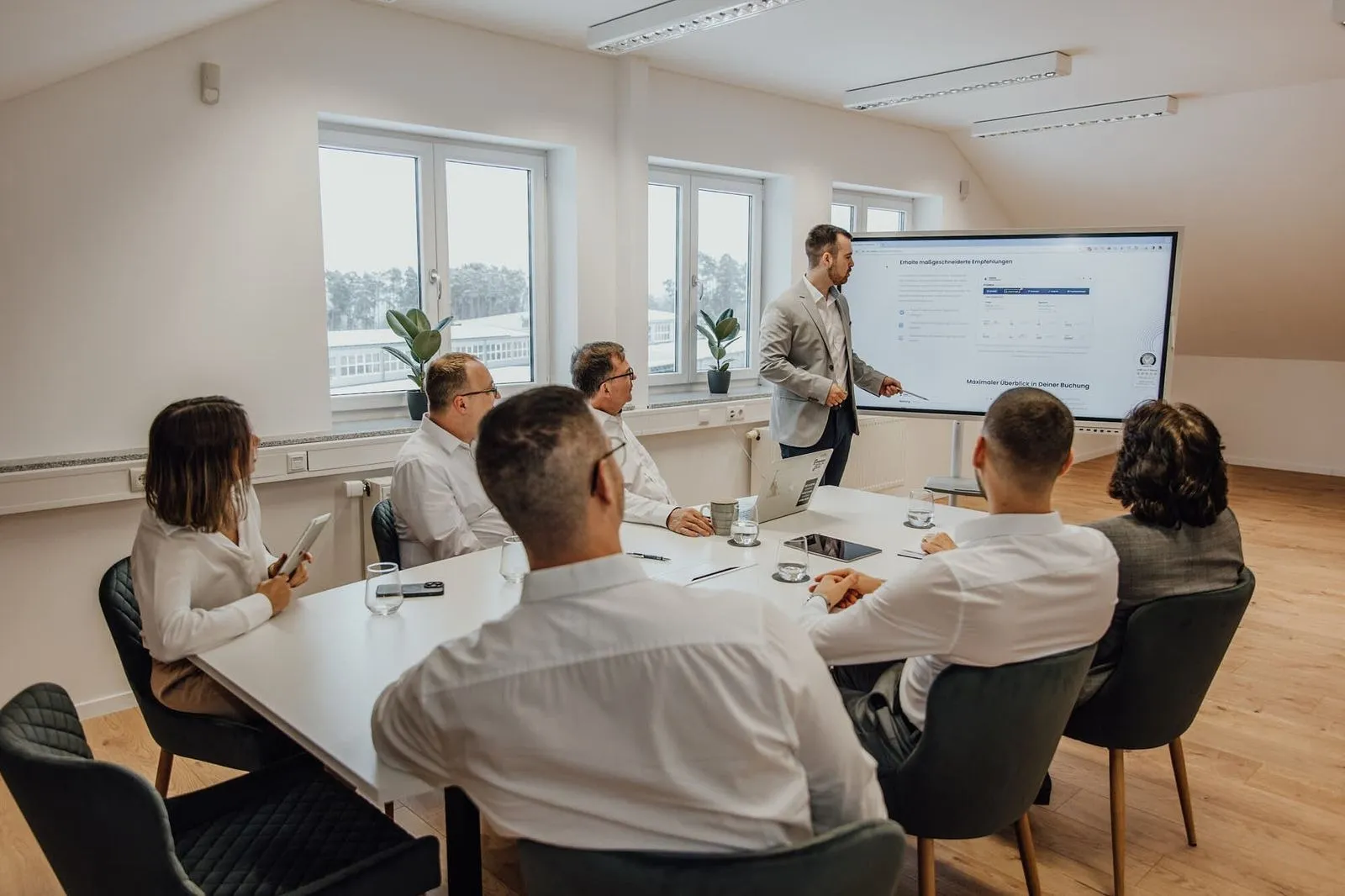
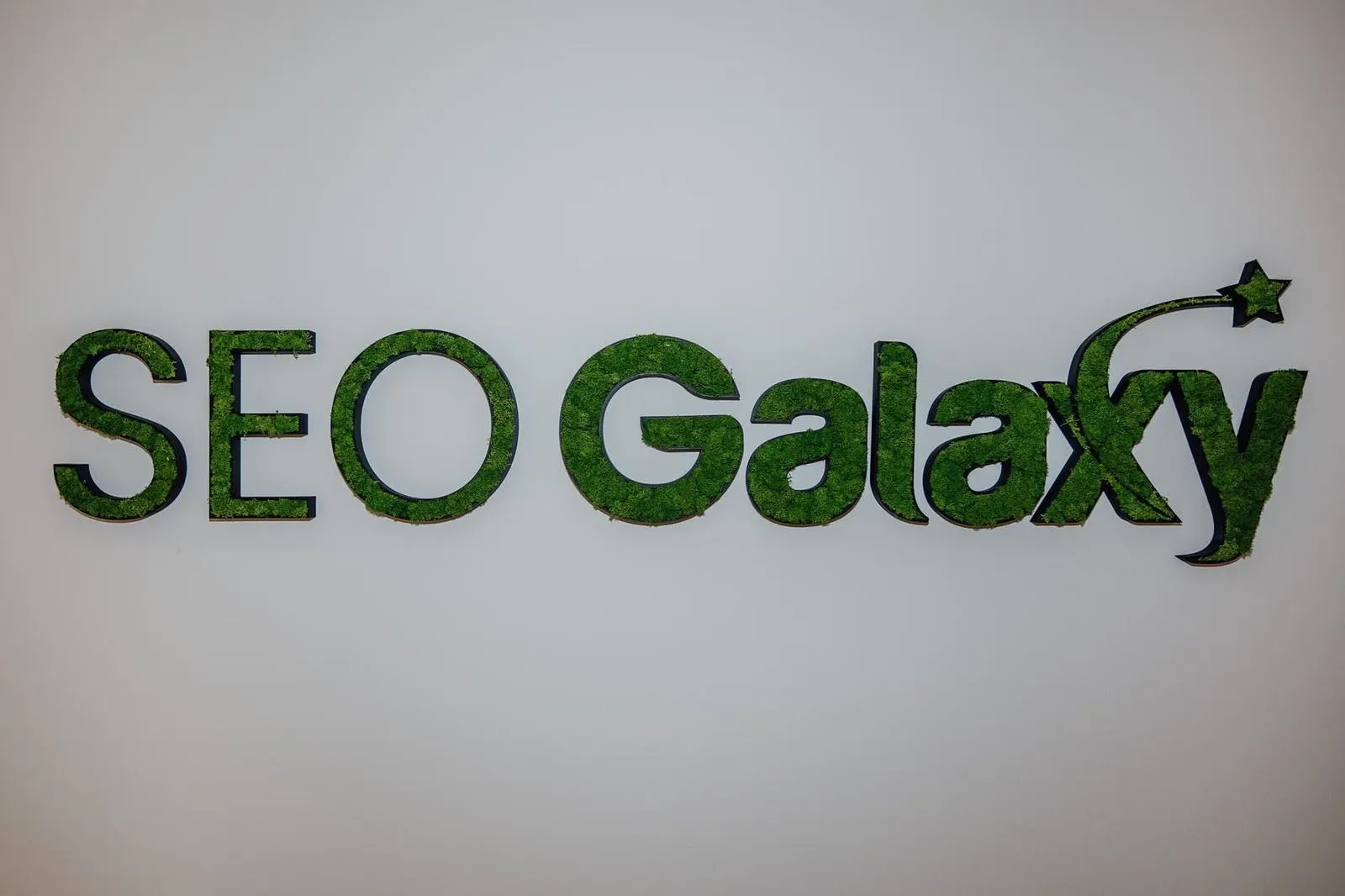

What is SEO?
SEO is an abbreviation for search engine optimization. The primary goal is to use targeted SEO measures to achieve greater visibility and a better ranking of your website in the organic search results pages of search engines such as Google. Search engine algorithms use numerous criteria to evaluate the relevance and quality of a website for specific search terms. On-page SEO, technical aspects and the linking structure play a decisive role in this.
For companies and website operators, professional search engine optimization opens up the opportunity to attract more traffic and qualified visitors. SEO experts like us implement strategies that are geared towards users’ search intentions. Relevant content, user-friendly navigation and fast loading times contribute to a positive user experience. Targeted content marketing – i.e. the creation and distribution of high-quality, search engine-relevant content – is also an integral part of successful SEO strategies today.
These factors are included in the search engine evaluation and have a positive effect on the ranking. SEO beginners in particular benefit from practical tips, easy-to-understand guidelines and clear recommendations for action that help them to implement initial measures themselves. Numerous high-quality SEO blogs and specialist portals such as the Search Engine Journal also offer in-depth information on current developments, trends and best practices.
The SEO basics cover various areas such as keywords, metadata, content optimization, internal links, structured data and technical requirements. If you want to delve deeper into the topic, you can build up the necessary specialist knowledge through online seminars, lessons in SEO courses or a professionally supervised SEO audit, for example. Many of these programs also offer a certificate afterwards that proves the skills learned.
Important: SEO is not a one-off project, but a continuous process. As both algorithms and user behavior are constantly changing, regular adjustments and further developments are necessary. If you want to be successful in the long term, you have to keep at it – with strategy, structure and up-to-date know-how.
Learn the basics of search engine optimization
Search engine optimization (SEO) encompasses a range of techniques and strategies aimed at improving the visibility of a website in the organic search results of search engines such as Google or Bing. By applying SEO fundamentals, websites can achieve higher rankings and generate more qualified traffic.
To build a solid SEO foundation, it is important to understand how search engines work. Google crawls and indexes websites by following backlinks from already known pages. A clear and logical directory structure of the website facilitates the crawling process and helps search engines to better understand the content of a website.
The basics of search engine optimization include:
- Keyword research: Identification of relevant search terms used by the target group
- On-page optimization: improving the content and HTML elements of a website to make it more attractive to search engines and users
- Technical optimization: Ensuring a fast loading time, mobile friendliness and error-free website structure
- Off-page optimization: Building high-quality backlinks from external websites to increase the authority and trustworthiness of a website
SEO beginners should initially focus on creating high-quality, informative texts that meet the needs of their target group. By carefully optimizing title tags, meta descriptions, headings and image texts, they can increase the relevance of their pages for specific keywords.
It is important to note that SEO is an ongoing process and it can take some time for optimization measures to have a visible impact on Google search results. However, through consistent application of SEO basics and patience, sustainable improvements in rankings and organic traffic can be achieved.
Learn SEO: Keyword research
Keyword research forms the basis of a successful SEO strategy. In this step, we determine the most relevant search terms that our target group is looking for in connection with our offers and services. The aim is to find the right keywords for each page of our website and integrate them into the content in a targeted manner. In this text, for example, it is the keyword “learn SEO” that we want to be found for.
But how do you start? First, we create a list of all subpages and assign a main keyword to each page. We then research suitable keyword variants using special keyword tools. We then incorporate these keywords into page titles, headings, URLs and content in order to improve the ranking for the relevant search terms.
When selecting keywords, we take into account not only the search volume and the intensity of competition, but also the search intent of the users. This is because we only have a chance of achieving a good ranking if the content optimally answers the questions and needs of searchers. In addition to general terms, it is also worth optimizing for long-tail keywords, i.e. longer and more specific search phrases.
In order to develop the best keyword strategy for our website, we also analyze our competitors’ keywords and check which search terms we already rank well for. With the right keywords, we create the basis for being found in the relevant search areas and directing more visitors to our pages.
Onpage SEO optimization
On-page optimization is a cornerstone of successful SEO strategies. It includes a wide range of measures to improve the visibility of individual websites in search results. The focus here is on the content and structure of the page in order to provide Search Engine Optimization beginners and advanced users with relevant content.
An essential element of on-page optimization is the targeted selection and placement of keywords. Careful keyword research can be used to identify topic-relevant search terms that can be strategically integrated into headings, meta information and body text. It is important to find a natural balance and avoid keyword stuffing in order to ensure optimal readability for users.
.webp)
In addition to keyword optimization, the structure and formatting of the content also play a central role. The use of meaningful headings (H1 to H6), paragraphs and lists makes it easier for both users and search engines to navigate and understand the page. Internal links between thematically related subpages help to increase relevance and provide users with additional insights.
Another factor in on-page optimization is the design of user-friendly and descriptive URLs. These should be as short and concise as possible, contain the main keyword and reflect the content of the page. The use of hyphens instead of underscores increases readability for search engines.
High-quality, unique and up-to-date content is at the heart of successful on-page optimization. By regularly publishing new, thematically relevant articles or blog posts, the relevance of the website for selected keywords can be continuously increased. It is important to focus on user-friendliness and answering frequently asked questions in order to create added value for the target group.
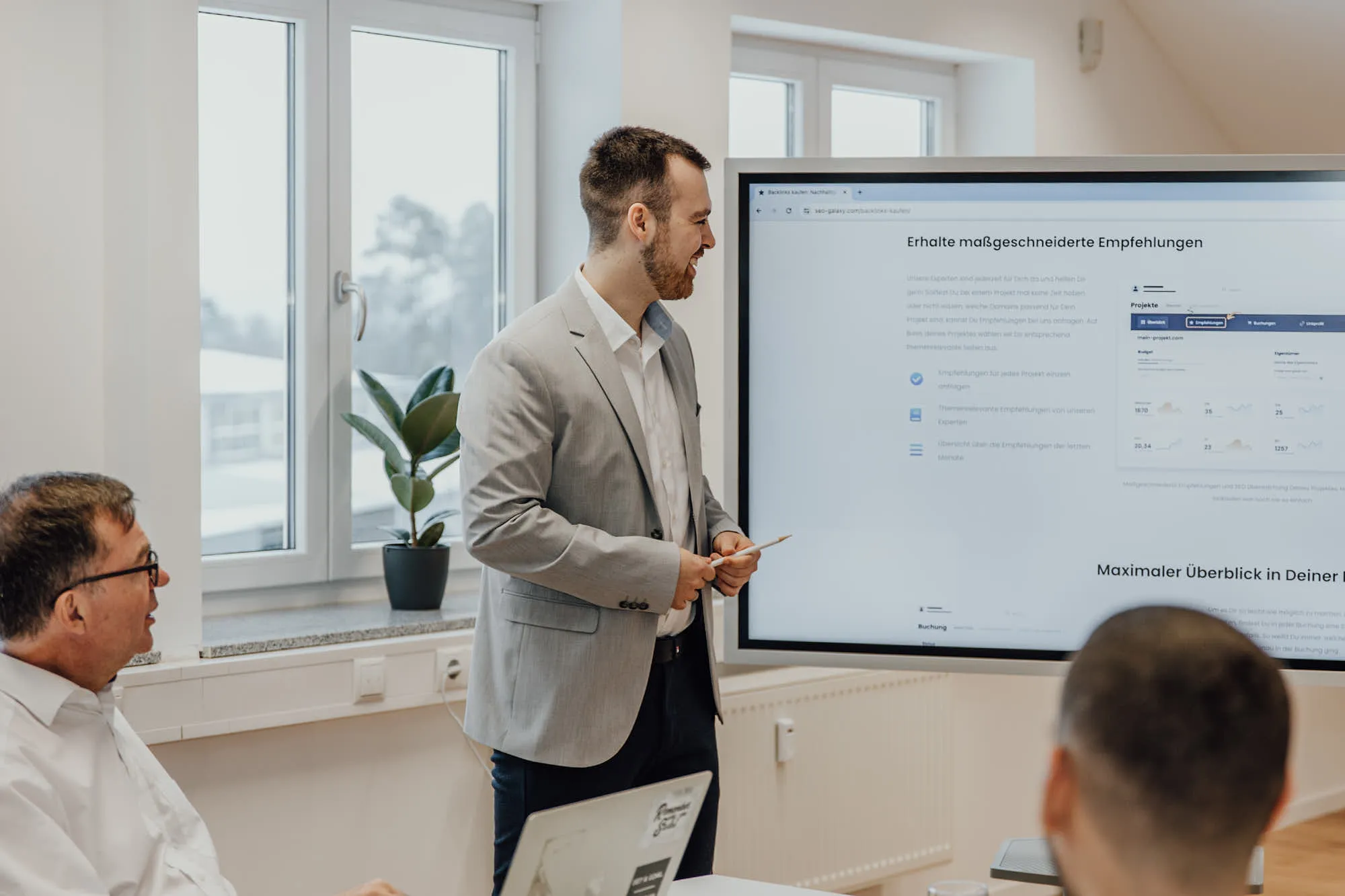
Technical optimization
A solid technical foundation forms the basis for successful SEO optimization. This includes fast loading times, mobile optimization of pages, SSL encryption and smooth crawling and indexing by Google and other search engines. Slow-loading websites with technical deficiencies not only worsen the user experience, but are also positioned lower by Google Search in the search results.
Our SEO experts use tools such as Google PageSpeed Insights to identify weaknesses and improve website performance. Common measures include compressing images, activating browser caching and choosing a high-performance hosting provider. A website that is optimized for all devices and screen sizes is also an important part of technical SEO.
Regular updates and adjustments to Google’s constantly evolving guidelines are essential in order to achieve good rankings in the long term. This also includes taking into account new technologies and trends such as the mobile-first index or the increasing importance of voice search and AI. A deep understanding of the technical aspects of search engine optimization is therefore the key to more visitors and higher conversion rates.
In addition to on-page factors, off-page optimization also plays an important role in SEO success. Building high-quality backlinks from trustworthy websites signals the relevance and authority of a page to Google. However, link building measures require a great deal of sensitivity and experience in order not to inadvertently violate search engine guidelines and risk being penalized. This is where we can help with our backlink marketplace and as a professional link building agency.
Offpage SEO optimization
Off-page optimization includes all measures that are carried out outside of your own website in order to improve your ranking in search engines. A central component of off-page optimization is link building, in which backlinks are generated from trustworthy and topic-relevant websites. These backlinks serve as an important ranking signal for Google and other search engines, as they underline the authority and relevance of the linked website.
To get natural backlinks, it is crucial to create high-quality and unique content that offers added value for users. This can be informative blog articles, appealing infographics or useful online tools, for example. Publishing such content increases the likelihood that other websites will link to it and thus contribute to improving the link profile.
Guest posts on respected websites in the respective industry are a proven method of off-page optimization. By writing informative and relevant articles on other blogs or portals, you can generate valuable backlinks and increase the visibility of your own brand at the same time. However, care should always be taken to ensure that the links are integrated naturally so that they are not classified as spam by search engines.
Positive brand mentions in forums, blogs or the media help to improve the ranking and strengthen the online reputation.
A presence on platforms such as Facebook, Twitter or Instagram increases reach and supports off-page optimization.
Tools such as Majestic, Ahrefs or the Google Search Console help to analyze the link profile and monitor the general performance of the website.
Based on the data from the SEO tools, off-page strategies can be continuously optimized and adapted to the changing search engine algorithms.
Local search engine optimization
Local search engine optimization, also known as local SEO, is crucial for companies that want to target their business to a specific region. Unlike general SEO strategy, local search engine optimization aims to improve a company’s visibility in local search results. By applying best practices and considering specific ranking factors, businesses can optimize their presence in local search results, including Google’s coveted “Local Packs”.
A key component of an effective local SEO strategy is the optimization of the Google My Business profile. This profile should be fully completed and contain accurate information such as address, opening hours, photos and customer reviews. In addition, the use of relevant local keywords, such as city or region names in combination with the services or products offered, is of great importance. These keywords should be strategically placed in the title tags, meta descriptions and the content of the website.
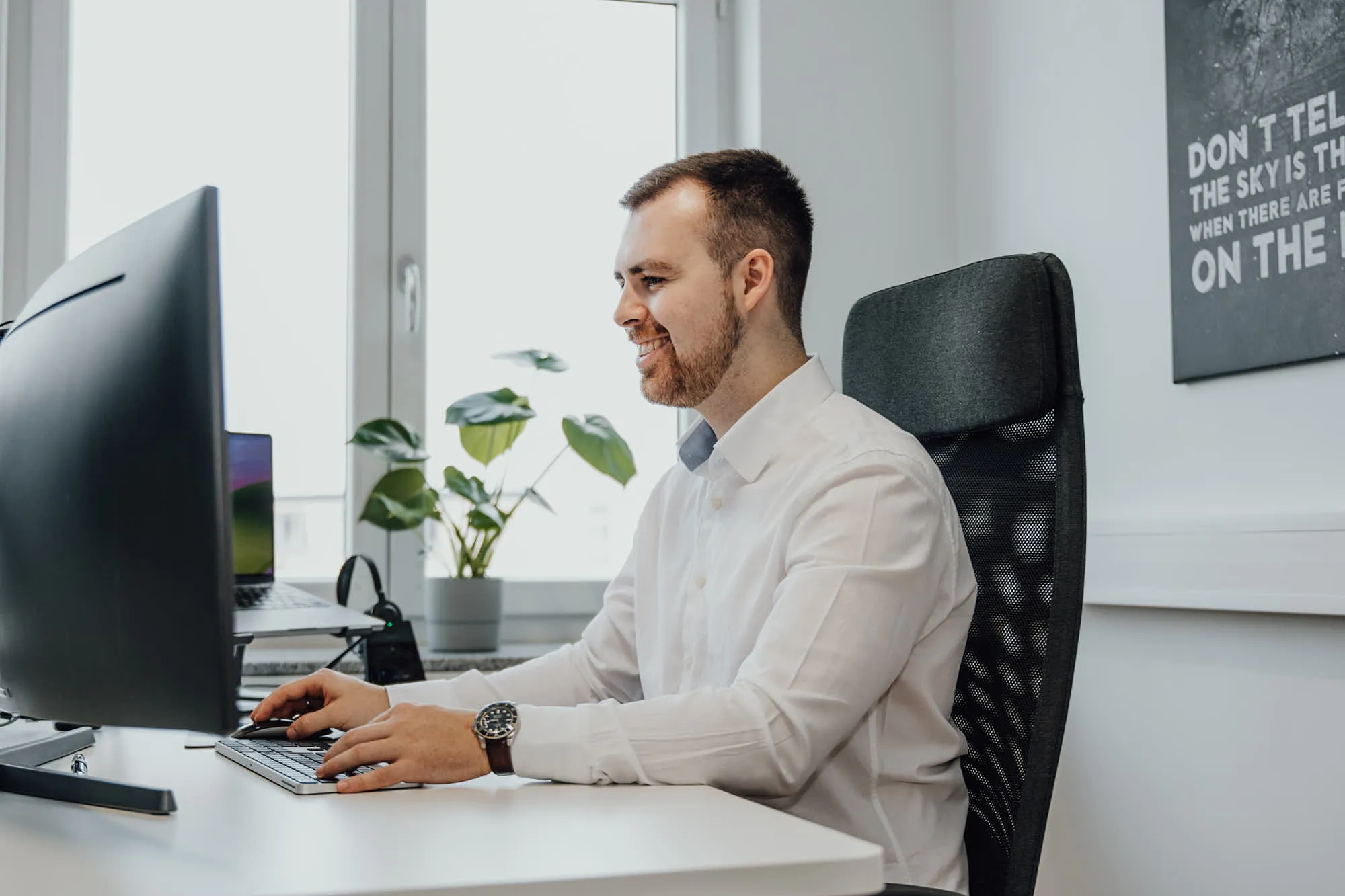

Structured data also plays an important role in local search engine optimization. By implementing schema markups, companies can provide search engines with additional information about their location, contact details and offerings. This makes it easier for search engines to assess the relevance of a website for local search queries.
Another key factor for success in local search is link popularity. Businesses should actively seek links from local directories, industry portals and other relevant websites. Positive customer reviews on platforms such as ProvenExpert, Yelp or Google can also help to boost the trust and credibility of your business and therefore improve your ranking in local search results.
Various SEO tools can be used to keep track of the performance and progress of local search engine optimization. These tools help to carry out local SEO audits, monitor rankings and identify opportunities for improvement. For small websites, for example, we can recommend the Seobility tool.
Overall, a successful local SEO strategy requires continuous optimization and adaptation to the ever-changing search landscape. By combining technical SEO, high-quality content and the maintenance of important local ranking factors, you as a company can improve your visibility in local search results and reach more potential customers in the vicinity.
Practical tips for successful SEO
To achieve long-term success with SEO, you need one thing above all: patience and perseverance. We have optimized many websites over the years and gained valuable experience in the process. The most important practical tips include:
SEO tools and resources: Become an SEO expert
Numerous SEO tools are available for successful search engine optimization. The Google Search Console and Google Analytics are essential for monitoring your own website and evaluating valuable data. According to a survey by SEMrush, 68% of marketers use keyword research tools such as Google Keyword Planner, Ubersuggest, Searchmetrics or Sistrix to optimize their SEO strategy and find the right keywords for their content.
Tools such as Screaming Frog, Ryte or Seobility are suitable for technical analyses and the optimization of on-page factors. These help to identify and eliminate potential weaknesses on the website. In addition, there are useful browser plugins such as SEO META in 1Klick, SeoQuake or the MOZ bar, which provide additional information and functions directly in the browser.
In addition to the technical tools, it is important to continuously educate yourself and stay up to date. SEO courses, blogs, books and conferences are ideal for this. SEO online courses in particular make it possible to learn the basics of SEO flexibly and at any time and to put the knowledge directly into practice.
Sound SEO training and the targeted use of SEO tools are crucial to being successful as an SEO expert. With the right resources and a continuous learning process, the visibility of websites in search engines can be significantly improved and more organic traffic can be generated in the long term.
Avoid common SEO mistakes: SEO basics
When learning the basics of search engine optimization and building SEO knowledge, it is important to avoid typical mistakes in order to achieve good rankings on Google and other search engines in the long term. Even experienced SEO experts occasionally make mistakes, but it is crucial for beginners in particular to avoid these from the outset in order not to jeopardize the success of their own website.The most common SEO mistakes include:
To avoid these mistakes, it is important to continuously educate yourself, understand the search engine guidelines and pursue a holistic SEO strategy. This also includes having realistic expectations of the results and focusing on long-term optimization rather than looking for quick fixes.
With the right approach and by avoiding these common mistakes, every beginner can expand their SEO knowledge and successfully optimize their website for search engines. We are happy to help you as an SEO agency, with SEO consulting or if you have any questions in general!
Our customers about us
More than 1000+ customers rely on our expertise
.webp)
OUR lOCATION



The most frequently asked questions
Can’t find the answer to your question? No problem! Just write to our team.
Jetzt kontaktierenWhat are the most important areas to learn SEO?
.svg)
The four main areas to learn SEO are an understanding of SEO technique, keywords, website structure and content. This includes topics such as keyword research, on-page optimization, technical SEO and off-page measures such as link building.
How do you start with search engine optimization?
.svg)
It usually starts with a thorough analysis of the website using SEO tools to identify potential for improvement. This is followed by keyword research to find suitable search terms for each subpage and incorporate them into titles, descriptions, headings and content.
What is important for on-page optimization?
.svg)
On-page optimization includes meaningful titles and descriptions with keywords, descriptive URLs, internal links, image optimization and relevant and unique content. The focus should be on user intention.
What role does technical SEO play?
.svg)
Technical factors such as loading time, mobile optimization, SSL encryption and crawling have a major influence on rankings. Slow pages with errors are penalized by Google. Tools such as Google PageSpeed Insights help with analysis and optimization.
How do you proceed step by step with SEO?
.svg)
You can learn SEO step by step, starting with the basics, keyword research, on-page optimization, technical aspects and off-page measures through to more specific topics. A structured approach and patience are important.
What is off-page optimization?
.svg)
Offpage SEO includes measures such as link building, brand mentions and social media marketing. High-quality content helps to obtain natural backlinks from relevant sites. Quality rather than quantity and organic growth are important. As a link building agency, we can help you with this.
How does local search engine optimization work?
.svg)
Local SEO is important for companies with a local connection. This includes an optimized Google My Business profile, local keywords, links in business directories, consistent contact details and good online reviews from customers.
What common SEO mistakes should be avoided?
.svg)
Typical mistakes include unnatural keyword stuffing, too little relevant content, duplicate content, too strong a focus on search engines instead of users, unrealistic expectations or seeing SEO as a one-off rather than a continuous task. Instead, patience and perseverance are required.
Which SEO tools and resources help with learning?
.svg)
The most important tools include Google Search Console and Analytics, keyword planners, crawling tools and browser plugins. There are also many blogs, books, courses, training sessions and conferences to help you keep up to date and educate yourself. We recommend Seobility, Semrush, Ahrefs and Sistrix as paid tools.
Are you ready to increase your online success?
Make an appointment with us now and find out how we can help you achieve more success in search engine marketing. Whether you run a small business or a large corporation – we have tailor-made solutions for you.Get in touch with us now!


.svg)


.webp)
.webp)

.webp)
.webp)
.webp)



.webp)
.webp)








